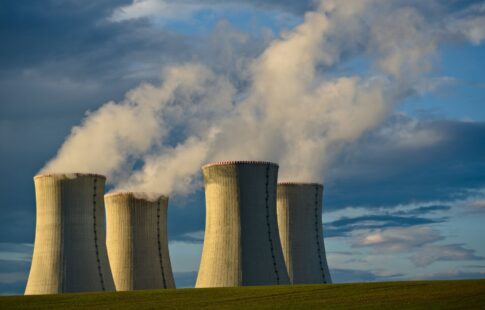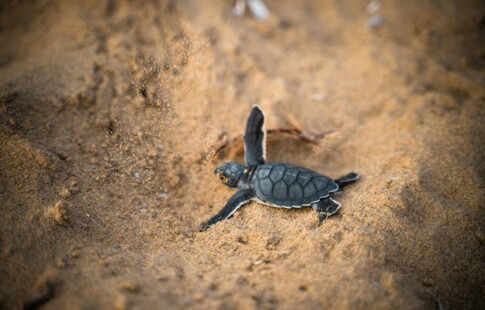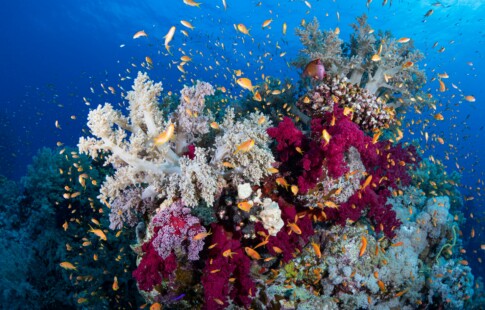
What are the Different Types of Environmental Science?
We are reader-supported. When you buy through links on our site, we may earn affiliate commission.
Each sector of science relates to the natural world. Environmental science is a specific branch in the field focusing on Earth’s organic processes and finding solutions to anthropogenic effects. Many individuals believe environmental science solely relates to climate or weather studies. It expands beyond temperature-focused evaluations, exploring all aspects of Earth’s natural functions. Ecological health, bioscience, sustainability, oceanography and marine biology are all different types of environmental science.
What is Environmental Science?
Before we dive into the different sections of environmental science, it is helpful to examine the field independently. Environmental science studies the connections between the planet, its air, its water and its living organisms. Additionally, it explores humanity’s impacts on the four components.
The field of study can source sustainable solutions, eliminating anthropogenic effects causing degradation. Currently, human-derived greenhouse gas emissions impact most sectors of environmental science. Their significant impact on Earth’s processes cause various degrees of harm.
Emissions power the enhanced greenhouse effect, fueling an array of alterations. The air pollutants change the atmosphere’s natural composition, limiting its ability to produce life-sufficient surface temperatures. Naturally, Earth collects solar radiation, creates heat, warms its surface, absorbs excess energy and sends it to space.
When greenhouse gases invade the atmosphere, they trap excess energy on the planet, refueling the warming process. They also have a higher sunlight-to-heat conversion rate, raising Earth’s temperature over time. Environmental scientists study the process and its effects, finding conservation methods.
The field of study originated in the 60s and 70s when global eco-consciousness began surfacing. Individuals developed concerns around ecological changes like water pollution and resource scarcity. Around this time, Rachel Carson wrote Silent Spring highlighting the adverse effects of a common insecticide.
Before she published her book, society rarely considered the environmental impacts of their household products. They were more concerned with the convenience of their lifestyles instead of the preservation of natural resources. Today, various scientific fields examine Earth’s broad effects, helping society increase its sustainability.
Environmental Health
Environmental health is one of the many types of environmental science. It examines the effects of air, water and land on society’s well-being. The pandemic increased individuals’ concerns around the planet and its influence on human health.
Scientists remain unsure of the COVID-19 virus’s origin, and theories point to climate change as an influential factor. Many believe the outbreak stemmed from an animal to human interaction. Environmental health professionals predict more outbreaks will originate from similar interactions in the future.
As the Earth’s temperature rises, animals and humans must migrate to access essential resources and adequate habitats. Migration will place incompatible beings together, introducing new viruses and other health effects. Environmental health scientists also study pollution’s effects on humanity’s well-being.
They discovered greenhouse gas emissions can cause asthma and other respiratory illnesses when inhaled. Other pollutants also cause cancer, stroke, heart attacks and more fatal conditions. Environmental scientists utilize health-related findings to protect humanity.
Animal Science
Animal science is a similar sector to environmental health. Instead of studying humanity’s connection to the planet, it evaluates animals’ impacts. Bioscientists discovered cattle’s connection to methane emissions, fueling the plant-based diet trend.
They also explore deforestation and water displacement’s effects on animals’ health. Some bioscientists remain in the research field, and others go on to work in wildlife protection. Many individuals become zookeepers or manage wildlife sanctuaries.
Environmental Sustainability
Environmental sustainability is another type of ecological science focusing on climate change prevention. It examines Earth’s natural systems and human-induced alterations. Sustainability focuses on preserving natural resources for future generations.
Sustainability scientists look at the agricultural industry and explore its impacts on the global ecosystem. They evaluate environmentally degrading practices like monocropping and their effects on soil production. Without adequate soil nutrients, the industry is unable to produce enough food to support humanity.
Professionals use their findings to support conservation laws and protect biodiversity. They also raise global awareness around adverse consumption effects, helping society develop eco-conscious change.
Oceanography and Marine Sciences
Oceanographers and marine scientists also study the environment. They assess anthropogenic effects on aquatic ecosystems. Scientists in the sector study microplastics and eutrophication.
They discovered plastic’s ability to pollute the ocean floor and work its way back up the food chain. Additionally, they evaluate the agricultural industry’s effects on marine habitats from synthetic fertilizer and pesticide pollution. Marine-focused professionals use their research to develop product and manufacturing regulations as well as preservation technology.
Becoming an Environmental Scientist
An individual can explore the different types of environmental science and find their career calling. Each subsection requires a unique set of skills supporting research development and problem-solving. You can examine your natural strengths and find your place in the field of environmental science, bettering the planet.
Share on
Like what you read? Join other Environment.co readers!
Get the latest updates on our planet by subscribing to the Environment.co newsletter!
About the author

Jane Marsh
Starting from an early age, Jane Marsh loved all animals and became a budding environmentalist. Now, Jane works as the Editor-in-Chief of Environment.co where she covers topics related to climate policy, renewable energy, the food industry, and more.





